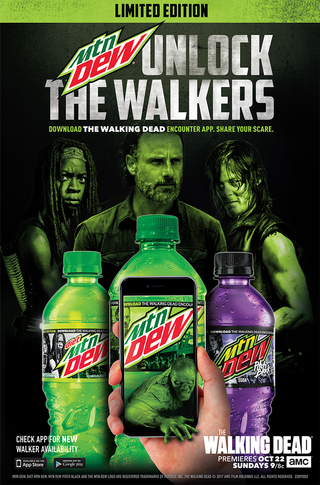AMC Networks Pitches Peak Programs in Upfront

To media buyers are looking for a place to park their advertising dollars during this crowded era of peak TV, AMC Networks’ message is we’ve got the good stuff—and we air commercials.
After holding a large-scale star studded upfront event last year AMC Networks this week is beginning a series of smaller scale dinners and lunches. Talent will be in attendance, but Scott Collins, president of ad sales at AMC Networks, says the more intimate setting will allow clients and agencies “speak a little more freely, be a little more comfortable, and ask more engaging questions about client needs.”
Collins contends that the networks he’s selling stand out even at a time when more channels and increasing number of tech-driven streaming services are trying to compete in AMC’s wheelhouse.
Read More: Upfront Central
“We think it’s a great moment for us. We tend to produce the stuff that people really do care about and the stuff that really breaks through,” Collins says.
“When you stop and consider the explosion of content, it really is on the platforms that are not ad supported that’s vying for people’s attention,” he adds. “At AMC Networks we are proudly ad supported so it makes what we have that much more unique and precious.”
Most precious remains The Walking Dead, which despite declining ratings remains the most-watched scripted show in TV.
Broadcasting & Cable Newsletter
The smarter way to stay on top of broadcasting and cable industry. Sign up below
Collins also points to the programming on the company’s other networks.
After a big reception for the first episodes of BBC America’s Planet Earth: Blue Planet 2, which was simulcast on all five AMC Networks channels, the company is going to market with plans to simulcast the entire season of the next installment on BBC America, AMC, IFC and Sundance TV.
“This type of content, it’s so unique and so different. It’s such wonderful feel-good television and we think we can make a much bigger event out of it,” Collins says.
Renewed for second seasons are BBC America’s Killing Eve, Sundance TV’s Liar and Love After Lockup on WE-TV.
AMC sells more than commercials. Last year it did a big augmented reality program for Mountain Dew that let users capture Walking Dead zombies and win soft drinks. AMC did research on the sponsorship and found that it created $10 million in incremental sales and converted 9% of soda drinkers into Mountain Dew drinkers.
“That sort of showcase for the power of television and how our IP affects cash register is pretty potent for us,” Collins says.
AMC has also getting involved with gaming, launching an augmented reality game called Our World. Collins says the game will be able to drive traffic to stores and restaurants and is looking for sponsors.
In a market where the big boys are showing off their data power, AMC Networks recently launched its own Agility data-driven advertising division. Agility’s first product is Aurora, a targeted solution platform that promises a high level of transparency as well as an ability to be used for planning TV across networks.
“It’s on a client’s desktop so they can actually play with it and see it’s not just what we want you to buy on our air, but you could actually optimize your target across all of television,” Collins says.
AMC Networks is also in the business of events that build its own brands and present opportunities for advertisers to sponsor.
The list includes long running events like the Sundance Festival and Independent Spirit Awards as well as newer ones like Rooftop Films and Afropunk in Brooklyn.
In recent weeks there have been a number of forecasts calling for TV spending to be flat to down for the foreseeable future while digital grows. In the fourth quarter, AMC Networks reported a 9.9% drop in ad revenue to $269 million at its national networks. For the full year, ad revenue were down 3.1% to $960 million.
But like many TV ad execs, Collins is upbeat about the upfront market as Facebook’s found Mark Zuckerberg faces Congress over privacy issues.
“Upfronts are funny because sometimes they can surprise you and they have their own pace and cadence. I think a lot of people are going to be concerned about getting their money down on the right content and I think that remains the driver of upfronts, and I don’t think this year will be any different,” he says.
“There’s a lot of uncertainty out there and I think television has proven time and time again to really be able to move product and tell stories about brands,” he says. “Safety hasn’t been solved either [by digital ad sellers], he added.
“I guess it depends on who you talk to, but I think a lot of brands really need the consistency and the safeness and the ‘I know what I’m getting with television’ and when someone is looking for that, we have that in spades,” Collins says.
Jon has been business editor of Broadcasting+Cable since 2010. He focuses on revenue-generating activities, including advertising and distribution, as well as executive intrigue and merger and acquisition activity. Just about any story is fair game, if a dollar sign can make its way into the article. Before B+C, Jon covered the industry for TVWeek, Cable World, Electronic Media, Advertising Age and The New York Post. A native New Yorker, Jon is hiding in plain sight in the suburbs of Chicago.

